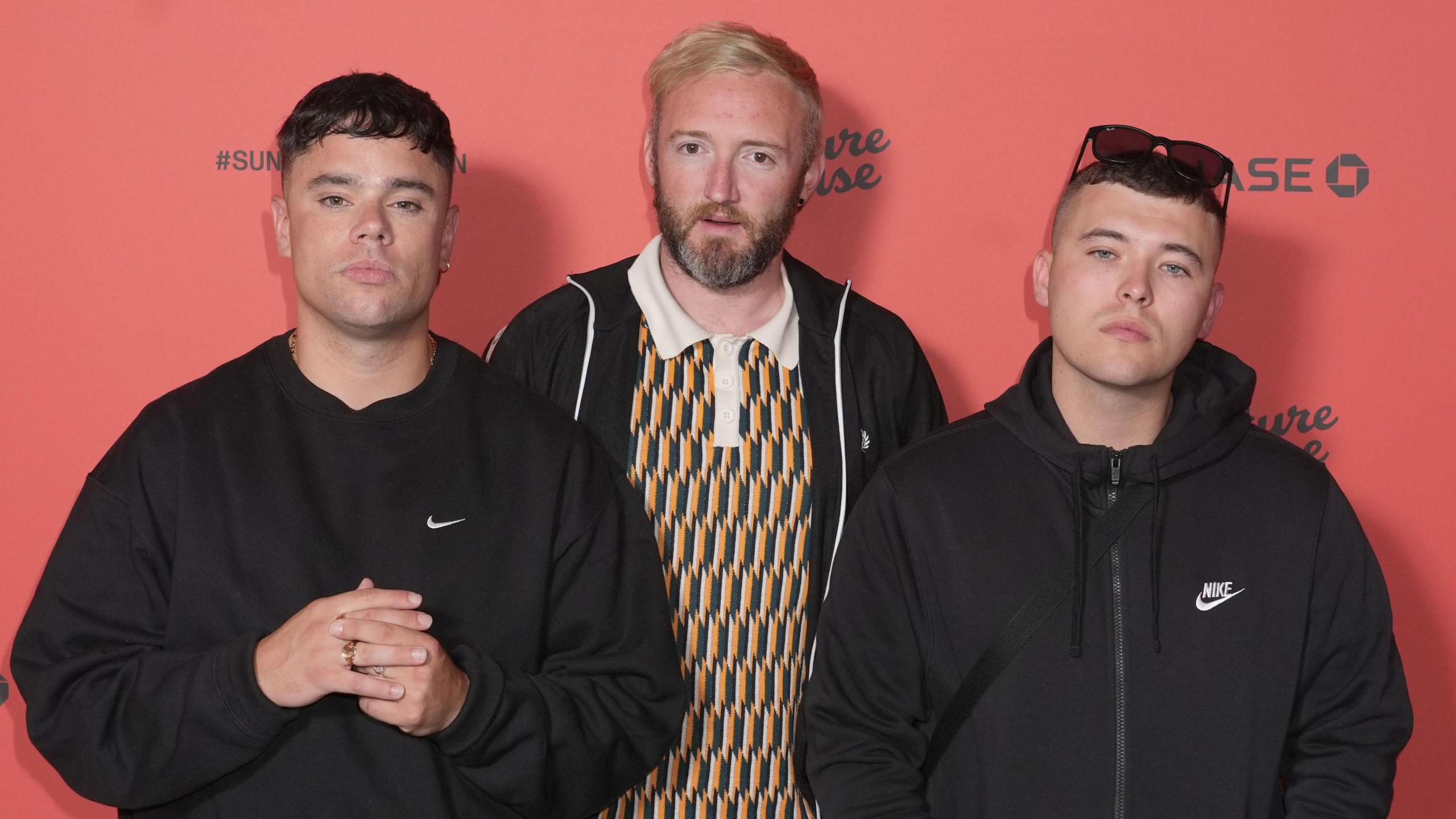Kneecap: Rap group are no strangers to controversy, but is this time different?
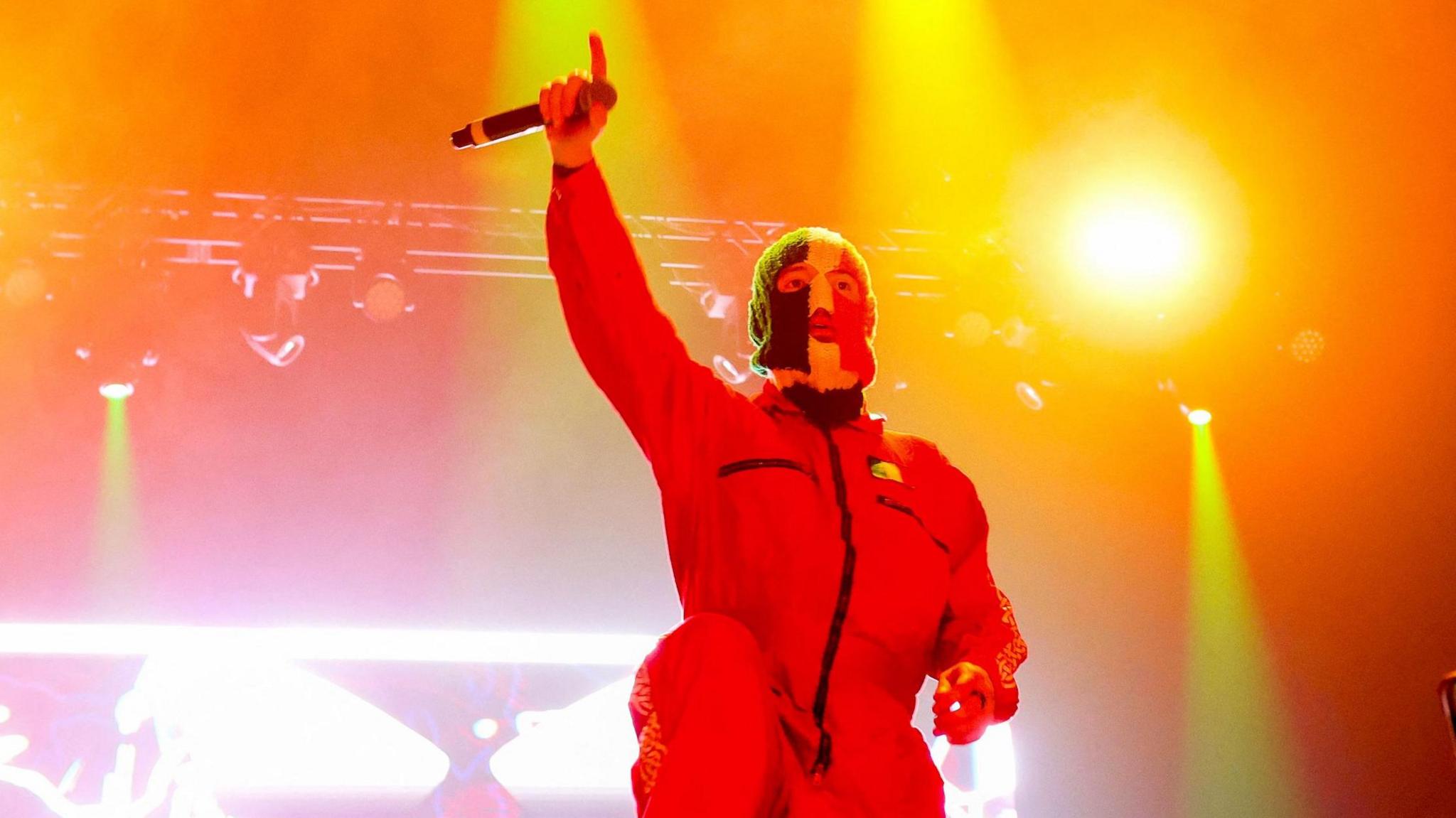
DJ Próvaí usually wears a balaclava on stage, a look that dates from the band's early days, when he was trying to hide his identity from the school where he worked
- Published
To their fans, west Belfast rave-rap group Kneecap are a rowdy, subversive force of nature. But to many others, their inflammatory political messages make them dangerous and amoral.
Following in the footsteps of anti-establishment rap groups like NWA and Run The Jewels, the trio present themselves as dissident underdogs, giving a voice to the oppressed.
Their lyrics, delivered in a rapid-fire mix of English and Irish, cover everything from drug-fuelled parties to their desire to free Northern Ireland from British rule.
On stage and on film, they've created a riotous experience that's thrilled Glastonbury, won a Bafta award, and inspired what's been called an "Irish language revolution, external".
But their rising profile has resulted in increased scrutiny and anger about their political statements.
During an incendiary performance at the Coachella music festival in California earlier this month, they described Israel's military action in Gaza as a US-funded genocide. As a result, they've been called anti-Semitic and branded "terrorist sympathisers".
Now, footage from two previous gigs is being assessed by counter-terrorism police in the UK.
In one, the band allegedly call for the death of Conservative MPs. Another seems to show a band member shouting "up Hamas, up Hezbollah". Both groups are banned in the UK and it is a crime to express support for them.
Kneecap have responded with a statement, saying they "do not, and have never, supported Hamas or Hezbollah".
They claimed that footage where they appeared to say "the only good Tory is a dead Tory" had been "taken out of all context", and apologised for the hurt caused to the families of murdered MPs Jo Cox and Sir David Amess.
But Cox's widower Brendan was unimpressed, calling their statement "only half an apology". Downing Street agreed, describing their words as "half-hearted" and "completely unacceptable".
The row was discussed in the House of Commons on Tuesday, with Shadow Home Secretary Chris Philp calling their comments "evil".
It isn't the band's first brush with controversy. If anything, controversy is in their DNA. But this time, the fallout threatens to engulf their career, with venues and festivals under pressure to cancel the band's gigs.
To understand how we got here, here's Kneecap's origin story.
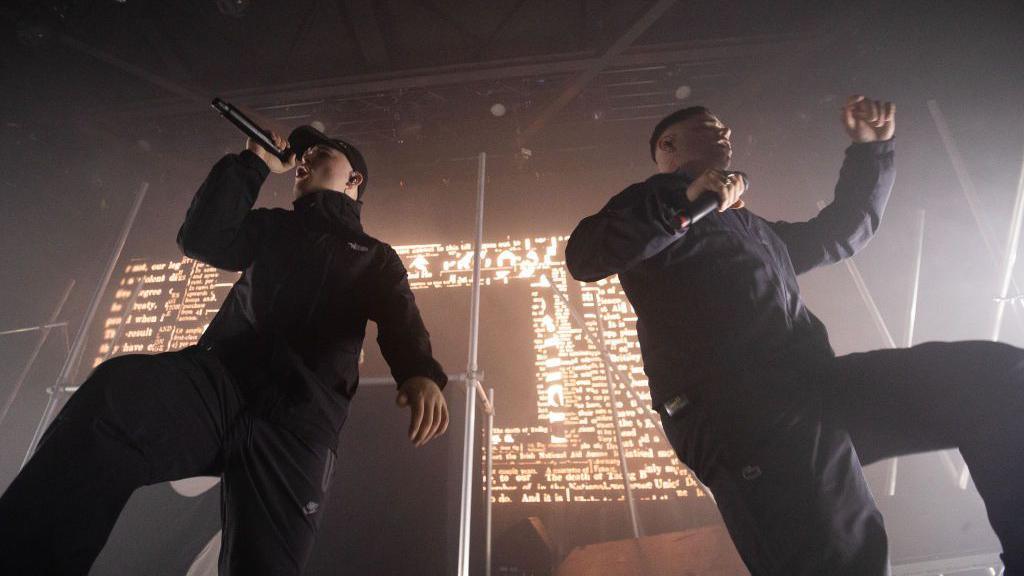
The band have gained a cult following with their high-octane live shows
Kneecap were formed in 2017 by rappers Mo Chara (Liam Óg Ó hAnnaidh) and Móglaí Bap (Naoise Ó Cairealláin), alongside beatmaker DJ Próvaí (JJ Ó Dochartaigh).
Their career was sparked by an incident in which Móglaí and a friend were out spray-painting the day before a march in support of an Irish Language Act.
Móglaí had written "cearta" (rights) on a bus stop when police arrived. He fled but his friend was arrested, and spent a night in the cells after refusing to speak English to the police.
They documented the incident in the song C.E.A.R.T.A, which they released "just for the craic. No plans for after," Mo Chara told the Irish Times, external.
To their surprise, the song was playlisted by Irish broadcaster RTÉ, only to be removed after listeners complained about drug references in the lyrics.
After that, their output was sporadic. The mixtape 3CAG (slang for the drug MDMA) arrived in 2018, followed by the singles H.O.O.D and MAM - dedicated to Móglaí's mother, who had died by suicide.
Those early records showcased an ability to move between sharp satire, tender vulnerability and the experiences of Northern Ireland's "ceasefire babies" - the generation born around the Good Friday Agreement in 1998.
Talking to the BBC in 2023, the band said they were inspired by US bands like Dead Prez, NWA and Wu Tang Clan.
"Rebel music in Ireland has all the same sort of ideas as hip-hop in America. A community that's oppressed, using songs to revolt in some way," said Mo Chara.
They perform most of their lyrics in Irish, drawing inspiration from a burgeoning underground scene of "as Gaeilge" rap acts like Imlé and Seamus Barra (the latter was even name-checked in their debut single).
"The only way that Irish history and mythology was passed down was orally. I think that's why it's important for us to have that intertwined with our music," Móglaí Bap told Crack magazine last year, external.
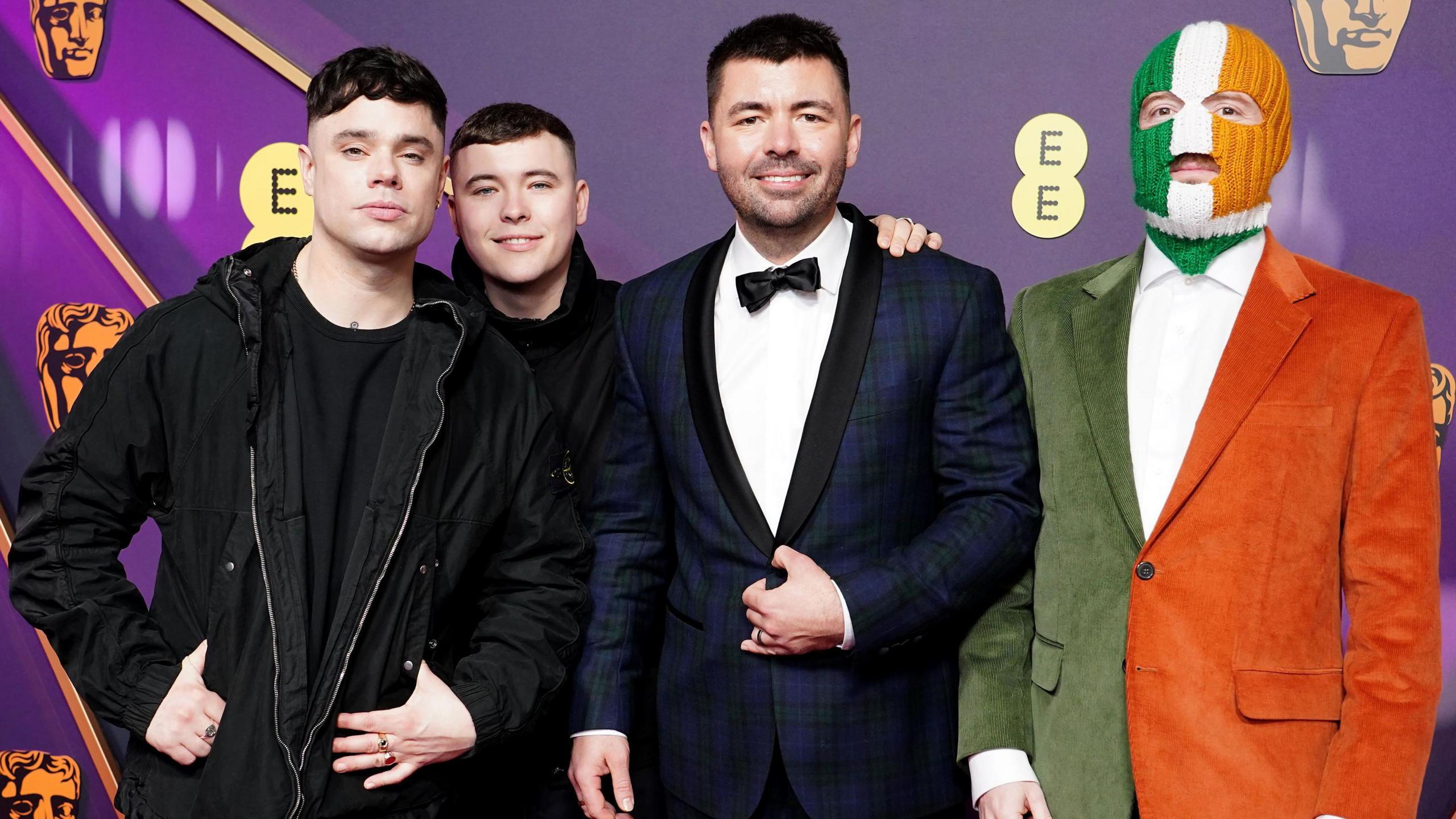
Kneecap's biopic, directed by Rich Peppiatt (centre, in a bow tie), won the Bafta award for an outstanding debut by a British writer, director or producer in February
Kneecap's lyrics frequently contain Republican slang and slogans. Even their name is a reference to the IRA's chosen method of punishment for alleged drug dealers during the Troubles.
The messaging has landed them in hot water before. DJ Próvaí lost his job as a teacher in 2020 after his school was alerted to a video of a concert where he'd painted "Brits out" on his buttocks.
Two years later, the band made headlines in Belfast after commissioning a mural of a burning police vehicle with a slogan criticising Northern Ireland's pre-Good Friday police force, the RUC.
Designed to promote a festival appearance, it was criticised by politicians across the spectrum.
"Loathe to give the band more publicity," said Alliance leader Naomi Long, external, "but as a community we need to start asking ourselves what messages we're sending out about the kind of future we want."
The band have claimed their take on Republicanism is partially tongue-in-cheek - satirising the self-important sloganeering they grew up with.
"Republicanism is so vast, and on a spectrum," Móglaí Bap told the New York Times, external. "We like to toy with it. We like to take the irony on."
Certainly, the band's gleeful celebration of drug culture puts them at odds with the old guard of the movement - but the band are serious about their desire for a unified Ireland.
"The British government has failed us for 100 years," Mo Charra told Vulture last year, external. "It's not like this is a trial run. You've had enough time and it's failed."
Awards success
Kneecap's reputation grew in 2024 with the release of a film, also called Kneecap, which presented a semi-fictional, and often hilarious, account of their rise to fame.
Starring the band as themselves, with Michael Fassbender as Móglaí's father, the movie won the audience award at the Sundance Film Festival, with critics praising its "punky defiance, external" and "unruly energy, external", and was nominated for six Baftas.
It was followed by their debut album, Fine Art, a concept record that threw fans into a hedonistic night out with the band at a fictional Belfast pub called The Rutz.
With songs that skewered the music industry and addressed Northern Ireland's mental health crisis, it showcased a band with more to say than their reputation suggested.
Still, in an era of sanitised, apolitical music, Kneecap's instincts for provocation and protest were inevitably going to draw attention.
Pro-Palestinian chants have featured in their gigs since the start of the latest Israel-Gaza war. But when they brought those messages to Coachella, they faced a new level of scrutiny and criticism.
Kneecap weren't the only people who uttered pro-Palestinian messages at the festival, but accusations of genocide and video screens that declared "F*** Israel" were seen by some as crossing a line into hate speech.
The organisers of Israel's Nova Music Festival, where more than 360 people were killed by Hamas in 2023, said Kneecap's message "deeply hurt" their community, and invited the band to visit an exhibition about the victims and survivors – "not to shame or silence but to connect".
Others took a more strident tone. A music industry group called The Creative Community For Peace, along with Sharon Osbourne, called on the US government to revoke the band's visas.
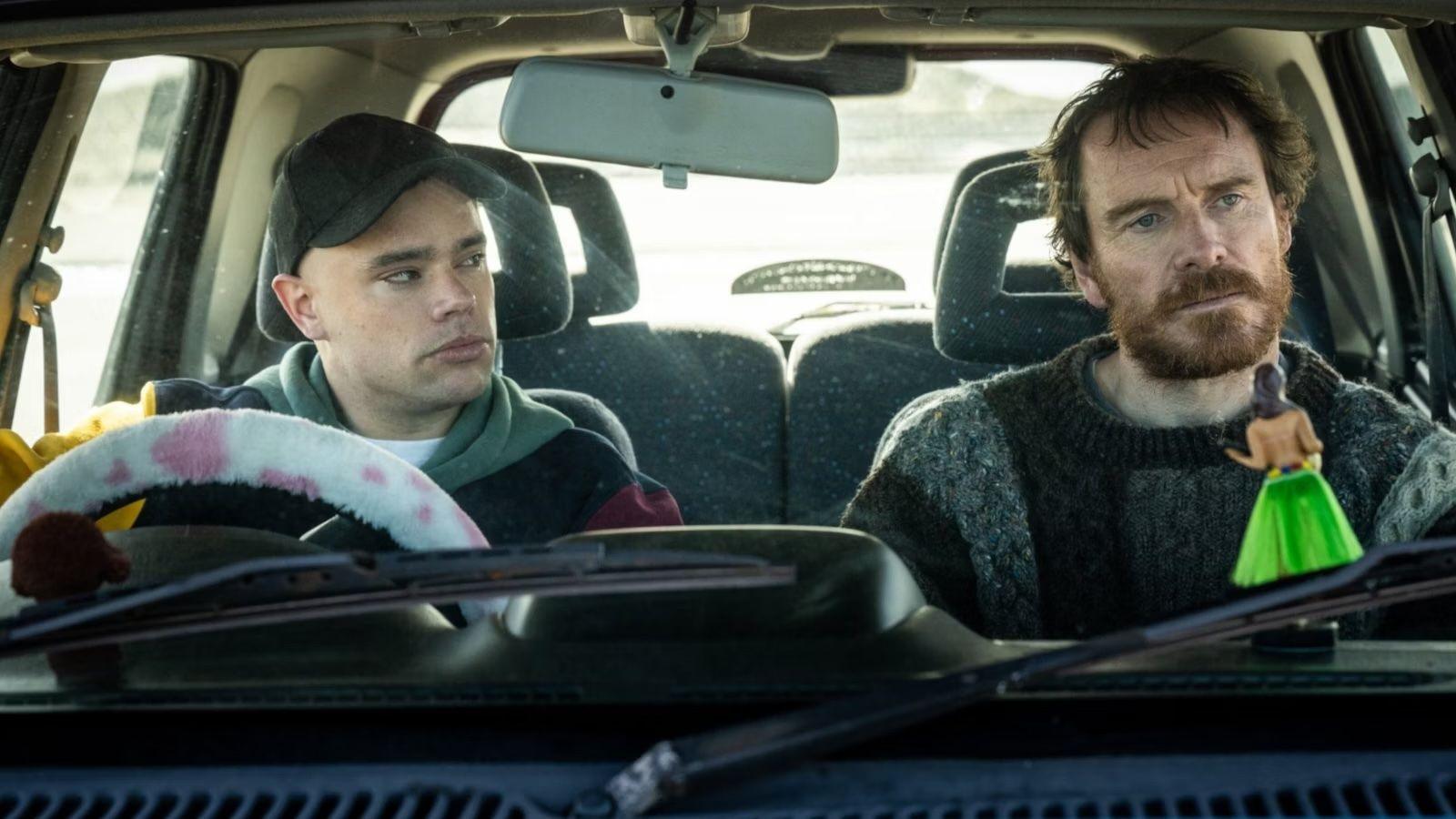
Michael Fassbender (right) co-starred in Kneecap's biopic, playing a former IRA member who faked his own death to escape prison
The band's manager defended their actions. Citing Hamas-run health ministry figures that more than 50,000 Palestinians had been killed since the start of the war, Daniel Lambert characterised criticism of the Coachella performance as "moral hysteria".
"If somebody's hurt by the truth, that's something for them to be hurt by," he told RTÉ1. "But it's really important to speak truth and thankfully, the lads are not afraid to do that.
"They have the bravery and the conviction, given where they've come from in a post-conflict society, to stand up for what's right, and [they] are willing to do that despite the fact that it may harm their career."
Right now, their career is under intense pressure.
Since Coachella, Kneecap have received death threats and have been dropped by their booking agents in the US, which could jeopardise their visas ahead of a forthcoming sold-out tour.
The discovery of the concert video in which the band shouted "the only good Tory is a dead Tory" and advised the audience to "kill your local MP" shocked the political establishment, with counter-terrorism police reviewing the footage.
In Scotland, First Minister John Swinney has called for the band to be dropped from Glasgow's TRNSMT festival, saying their comments had "crossed a line".
The Eden Project in Cornwall has cancelled their gig in July, and others, including Glastonbury, are under pressure to call off appearances.
Home Office minister Dan Jarvis said on Tuesday: "There is an ongoing live police investigation, so the government would urge the organisers at the Glastonbury Festival to think very carefully about who is invited to perform there later this year."
At the same time, the criticism has only increased the profile of an act who were essentially an underground act a month ago.
This week, Kneecap's album entered the iTunes chart in Italy, Brazil and Germany for the first time.
- Published29 April
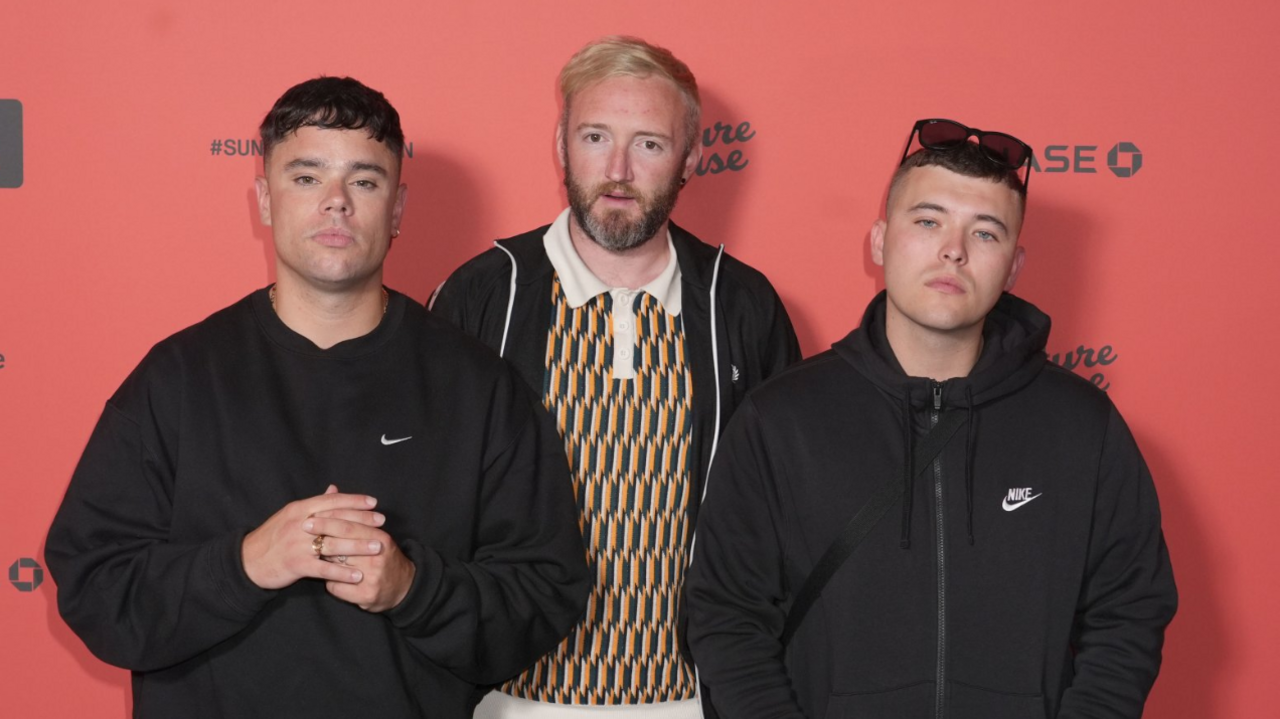
- Published28 April
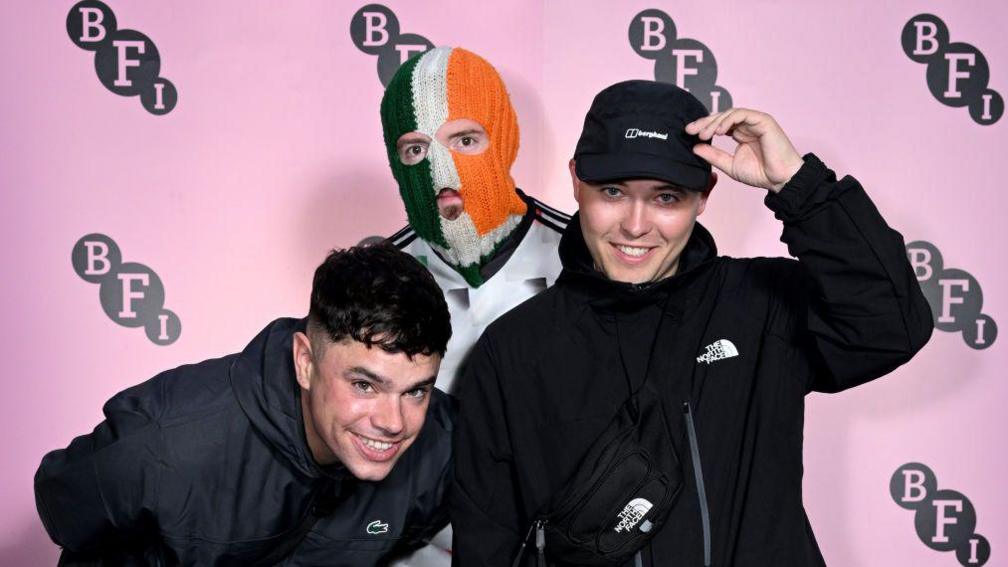
- Published29 April
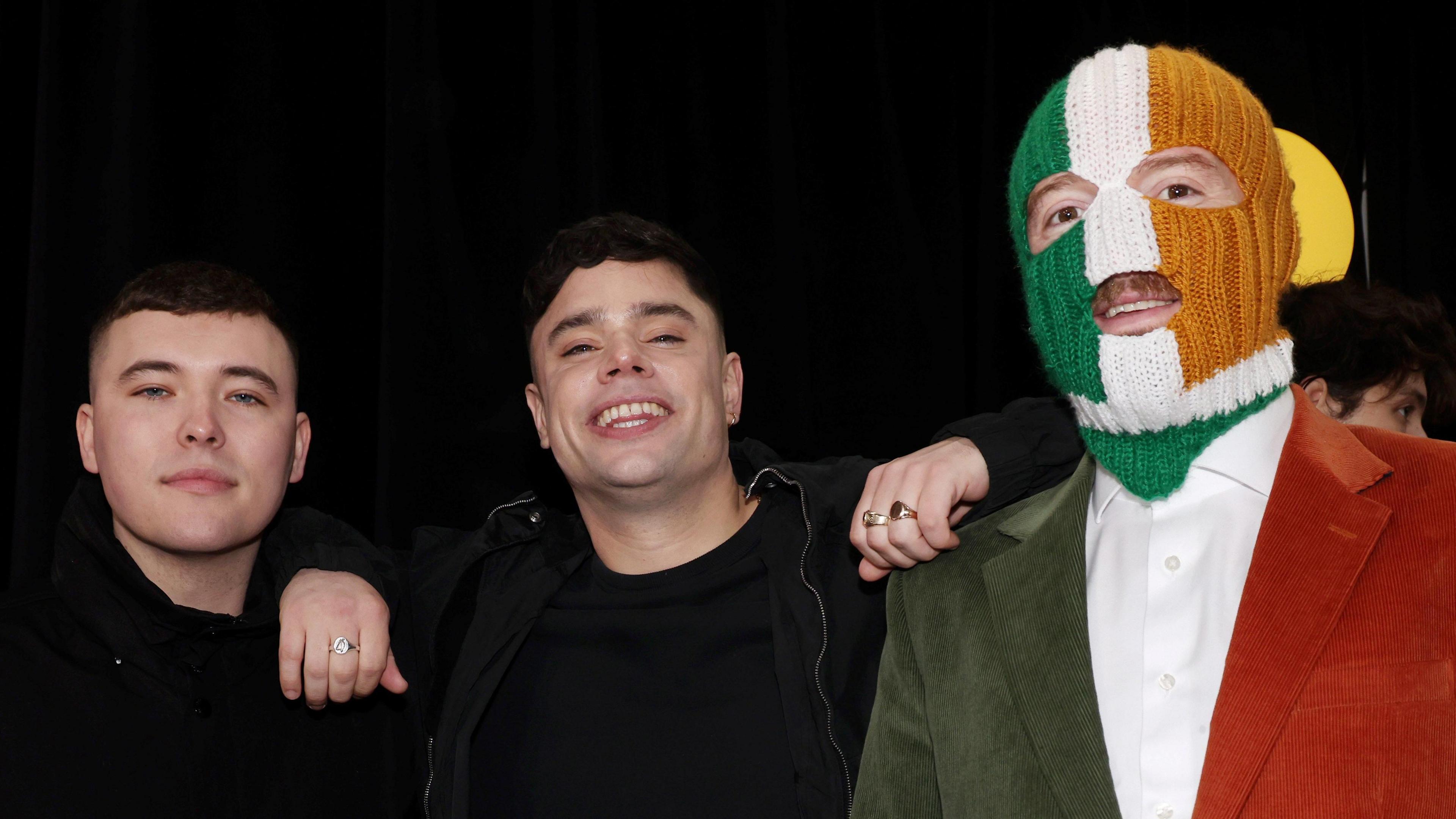
- Published29 April
